Salvage at Sea: Decoding The Legacy of the Salvage Convention
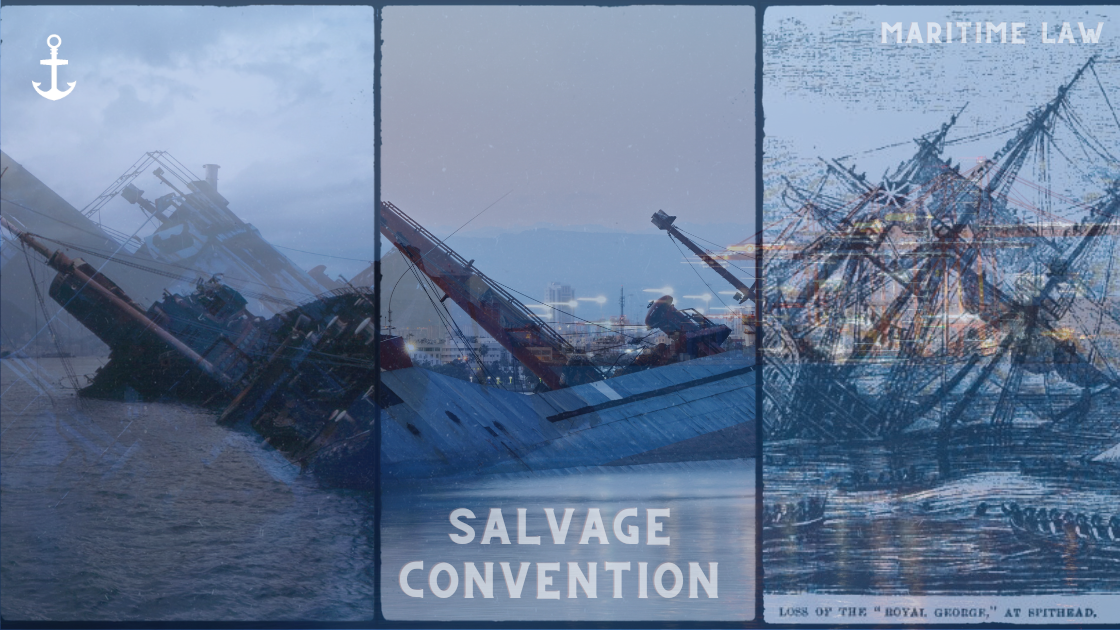
The world of maritime salvage has come a long way since the early 20th century. The International Convention on Salvage, adopted in 1989 and entering into force in 1996, marked a significant shift from the traditional "no cure, no pay" principle that had governed salvage operations for decades. In this blog post, we'll explore how this convention changed the game for salvors and shipowners and how Lloyd's Open Form (LOF) has evolved to address the challenges of modern salvage operations and also discuss the structure of convention in detail.
The Old Salvage Convention: "No Cure, No Pay"
Before the 1989 Salvage Convention, the salvage industry operated under the "no cure, no pay" principle, established in Brussels in 1910. Under this principle, salvors would only receive compensation for their services if they successfully saved the ship or its cargo. If they failed, their efforts went unrewarded, regardless of any environmental threats they might have averted.
The 1989 Salvage Convention: Changing the Game
The 1989 Salvage Convention addressed these issues head-on. It introduced provisions that allowed salvors to be compensated, even if the salvage operation was unsuccessful, provided they could prevent or minimize environmental pollution or damage. In successful salvage operations, salvors would receive an enhanced salvage award for their services.
The convention defined damage to the environment as "significant physical harm to human health, marine life, or resources in coastal or inland waters or adjacent areas resulting from pollution, contamination, fire, explosion, or similar major incidents."
Salvor's expenses were covered, including reasonable out-of-pocket expenses incurred during the salvage operation and a fair rate for equipment and personnel used.
LOF: The Standard Salvage Contract
Lloyd's Open Form (LOF) is the standard contract used for salvage operations between salvors and property or vessel owners. Over the years, LOF has seen multiple revisions, with the most recent being LOF 2020.
Previous versions, including LOF 1980, LOF 1990, LOF 1995, LOF 2000, and LOF 2011, have played crucial roles in shaping the salvage industry.
LOF 1980 was a game-changer as it departed from the traditional "no cure, no pay" principle. Shipowners were now obligated to reimburse salvors for their expenses and provide an additional supplement, known as a 'safety net,' of up to 15% in cases where the marine environment was at risk.
The SCOPIC Clause: Addressing Environmental Concerns
The introduction of the Special Compensation P&I Club (SCOPIC) clause in LOF 2000 addressed concerns related to the environmental threat and geographical limitations. This clause allowed salvors to invoke SCOPIC at any point during the salvage if they believed the operation would likely be unsuccessful.
The SCOPIC clause allows the salvor to invoke SCOPIC at any point during the salvage if they believe the operation will likely be unsuccessful
Advantages and Disadvantages
For shipowners, SCOPIC meant reduced arbitration needs, clearer termination rights, and a cap of 25% on the uplift. However, they also lost some environmental defenses and faced potential higher costs for tug rates.
The evolution of salvage agreements, from the traditional "no cure, no pay" principle to the 1989 Salvage Convention and the introduction of the SCOPIC clause in LOF 2000, reflects the changing dynamics of the maritime salvage industry.
These changes have aimed to strike a balance between incentivizing salvors to undertake challenging operations and protecting the environment while offering shipowners clearer guidelines and cost savings. As the industry continues to evolve, salvage agreements will likely adapt to new challenges and opportunities on the horizon.
The Structure of Salvage Convention
In this section, we will delve into the structure of the Salvage Convention in more detail. Remember, understanding the importance of the Salvage Convention is paramount.
Given below is the basic outline of convention in an interactive table format
International Convention on Salvage 1989
THE STATES PARTIES TO
THE PRESENT CONVENTION,
RECOGNIZING the desirability of determining by agreement uniform international rules regarding salvage operations,
NOTING that substantial developments, in particular the increased concern for the protection of the environment, have demonstrated the need to review the international rules presently contained in the Convention for the Unification of Certain Rules of Law relating to Assistance and Salvage at Sea, done at Brussels, 23 September 1910,
CONSCIOUS of the major contribution which efficient and timely salvage operations can make to the safety of vessels and other property in danger and to the protection of the environment,
CONVINCED of the need to ensure that adequate incentives are available to persons who undertake salvage operations in respect of vessels and other property in danger,
HAVE AGREED as follows:
Chapter I : General provisions
Article 1: Definitions
For the purpose of this Convention:
(a) Salvage operation means any act or activity undertaken to assist a vessel or any other property in danger in navigable waters or in any other waters whatsoever.
(b) Vessel means any ship or craft, or any structure capable of navigation.
(c) Property means any property not permanently and intentionally attached to the shoreline and includes freight at risk.
(d) Damage to the environment means substantial physical damage to human health or to marine life or resources in coastal or inland waters or areas adjacent thereto, caused by pollution, contamination, fire, explosion or similar major incidents.
(e) Payment means any reward, remuneration or compensation due under this Convention.
(f) Organization means the International Maritime Organization.
(g) Secretary-General means the Secretary-General of the Organization.
Article 2: Application of the Convention
This Convention shall apply whenever judicial or arbitral proceedings relating to matters dealt with in this Convention are brought in a State Party.
Article 3 Platforms and drilling units
This Convention shall not apply to fixed or floating platforms or to mobile offshore drilling units when such platforms or units are on location engaged in the exploration, exploitation or production of sea-bed mineral resources.
Article 4 State-owned vessels
1. Without prejudice to article 5, this Convention shall not apply to warships or other non-commercial vessels owned or operated by a State and entitled, at the time of salvage operations, to sovereign immunity under generally recognized principles of international law unless that State decides otherwise.
2. Where a State Party decides to apply the Convention to its warships or other vessels described in paragraph 1, it shall notify the Secretary-General thereof specifying the terms and conditions of such application.
Article 5 Salvage operations controlled by public authorities
1. This Convention shall not affect any provisions of national law or any international convention relating to salvage operations by or under the control of public authorities.
2. Nevertheless, salvors carrying out such salvage operations shall be entitled to avail themselves of the rights and remedies provided for in this Convention in respect of salvage operations.
3. The extent to which a public authority under a duty to perform salvage operations may avail itself of the rights and remedies provided for in this Convention shall be determined by the law of the State where such authority is situated.
Article 6 Salvage contracts
1. This Convention shall apply to any salvage operations save to the extent that a contract otherwise provides expressly or by implication.
2. The master shall have the authority to conclude contracts for salvage operations on behalf of the owner of the vessel The master or the owner of the vessel shall have the authority to conclude such contracts on behalf of the owner of the property on board the vessel.
3. Nothing in this article shall affect the application of article 7 nor duties to prevent or minimize damage to the environment.
Article 7: Annulment and modification of contracts
A contract or any terms thereof may be annulled or modified if:
(a) the contract has been entered into under undue influence or the influence of danger and its terms are inequitable; or
(b) the payment under the contract is in an excessive degree too large or too small for the services actually rendered.
Chapter II—Performance of salvage operations
Article 8: Duties of the salvor and of the owner and master
1. The salvor shall owe a duty to the owner of the vessel or other property in danger:
(a) to carry out the salvage operations with due care;
(b) in performing the duty specified in subparagraph (a), to exercise due care to prevent or minimize damage to the environment;
(c) whenever circumstances reasonably require, to seek assistance from other salvors; and
(d) to accept the intervention of other salvors when reasonably requested to do so by the owner or master of the vessel or other property in danger; provided however that the amount of his reward shall not be prejudiced should it be found that such a request was unreasonable.
2. The owner and master of the vessel or the owner of other property in danger shall owe a duty to the salvor:
(a) to co-operate fully with him during the course of the salvage operations;
(b) in so doing, to exercise due care to prevent or minimize damage to the environment; and
(c) when the vessel or other property has been brought to a place of safety, to accept redelivery when reasonably requested by the salvor to do so.
Article 9: Rights of coastal States
Nothing in this Convention shall affect the right of the coastal State concerned to take measures in accordance with generally recognized principles of international law to protect its coastline or related interests from pollution or the threat of pollution following upon a maritime casualty or acts relating to such a casualty which may reasonably be expected to result in major harmful consequences, including the right of a coastal State to give directions in relation to salvage operations.
Article 10: Duty to render assistance
1. Every master is bound, so far as he can do so without serious danger to his vessel and persons thereon, to render assistance to any person in danger of being lost at sea.
2. The States Parties shall adopt the measures necessary to enforce the duty set out in paragraph 1.
3. The owner of the vessel shall incur no liability for a breach of the duty of the master under paragraph 1.
Article 11: Co-operation
A State Party shall, whenever regulating or deciding upon matters relating to salvage operations such as admittance to ports of vessels in distress or the provision of facilities to salvors, take into account the need for co-operation between salvors, other interested parties and public authorities in order to ensure the efficient and successful performance of salvage operations for the purpose of saving life or property in danger as well as preventing damage to the environment in general.
Chapter III—Rights of salvors
Article 12: Conditions for reward
1. Salvage operations which have had a useful result give right to a reward.
2. Except as otherwise provided, no payment is due under this Convention if the salvage operations have had no useful result.
3. This chapter shall apply, notwithstanding that the salved vessel and the vessel undertaking the salvage operations belong to the same owner.
Article 13: Criteria for fixing the reward
1. The reward shall be fixed with a view to encouraging salvage operations, taking into account the following criteria without regard to the order in which they are presented below:
(a) the salved value of the vessel and other property;
(b) the skill and efforts of the salvors in preventing or minimizing damage to the environment;
(c) the measure of success obtained by the salvor;
(d) the nature and degree of the danger;
(e) the skill and efforts of the salvors in salving the vessel, other property and life;
(f) the time used and expenses and losses incurred by the salvors;
(g) the risk of liability and other risks run by the salvors or their equipment;
(h) the promptness of the services rendered;
(i) the availability and use of vessels or other equipment intended for salvage operations;
(j) the state of readiness and efficiency of the salvor’s equipment and the value thereof.
2. Payment of a reward fixed according to paragraph 1 shall be made by all of the vessel and other property interests in proportion to their respective salved values However, a State Party may in its national law provide that the payment of a reward has to be made by one of these interests, subject to a right of recourse of this interest against the other interests for their respective shares Nothing in this article shall prevent any right of defence.
3. The rewards, exclusive of any interest and recoverable legal costs that may be payable thereon, shall not exceed the salved value of the vessel and other property.
Incentivize salvors... factors for reward: value, skill, success, efforts, time, expenses, readiness, risks."
Article 14 Special compensation
1. If the salvor has carried out salvage operations in respect of a vessel which by itself or its cargo threatened damage to the environment and has failed to earn a reward under article 13 at least equivalent to the special compensation assessable in accordance with this article, he shall be entitled to special compensation from the owner of that vessel equivalent to his expenses as herein defined.
2. If, in the circumstances set out in paragraph 1, the salvor by his salvage operations has prevented or minimized damage to the environment, the special compensation payable by the owner to the salvor under paragraph 1 may be increased up to a maximum of 30% of the expenses incurred by the salvor However, the tribunal, if it deems it fair and just to do so and bearing in mind the relevant criteria set out in article 13, paragraph 1, may increase such special compensation further, but in no event shall the total increase be more than 100% of the expenses incurred by the salvor.
3. Salvor’s expenses for the purpose of paragraphs 1 and 2 means the out-of-pocket expenses reasonably incurred by the salvor in the salvage operation and a fair rate for equipment and personnel actually and reasonably used in the salvage operation, taking into consideration the criteria set out in article 13, paragraph 1(h), (i) and (j).
4. The total special compensation under this article shall be paid only if and to the extent that such compensation is greater than any reward recoverable by the salvor under article 13.
5. If the salvor has been negligent and has thereby failed to prevent or minimize damage to the environment, he may be deprived of the whole or part of any special compensation due under this article.
6. Nothing in this article shall affect any right of recourse on the part of the owner of the vessel.
"Special compensation for preventing damage, up to 30% expenses. Can increase to 100% if justified. Not part of general average."
Article 15 Apportionment between salvors
1. The apportionment of a reward under article 13 between salvors shall be made on the basis of the criteria contained in that article.
2. The apportionment between the owner, master and other persons in the service of each salving vessel shall be determined by the law of the flag of that vessel If the salvage has not been carried out from a vessel, the apportionment shall be determined by the law governing the contract between the salvor and his servants.
Article 16 Salvage of persons
1. No remuneration is due from persons whose lives are saved, but nothing in this article shall affect the provisions of national law on this subject.
2. A salvor of human life, who has taken part in the services rendered on the occasion of the accident giving rise to salvage, is entitled to a fair share of the payment awarded to the salvor for salving the vessel or other property or preventing or minimizing damage to the environment.
Article 17 Services rendered under existing contracts
No payment is due under the provisions of this Convention unless the services rendered exceed what can be reasonably considered as due performance of a contract entered into before the danger arose.
Article 18 The effect of salvor’s misconduct
A salvor may be deprived of the whole or part of the payment due under this Convention to the extent that the salvage operations have become necessary or more difficult because of fault or neglect on his part or if the salvor has been guilty of fraud or other dishonest conduct.
Article 19 Prohibition of salvage operations
Services rendered notwithstanding the express and reasonable prohibition of the owner or master of the vessel or the owner of any other property in danger which is not and has not been on board the vessel shall not give rise to payment under this Convention.
Chapter IV—Claims and actions
Article 20 Maritime lien
1. Nothing in this Convention shall affect the salvor's maritime lien under any international convention or national law.
2. The salvor may not enforce his maritime lien when satisfactory security for his claim, including interest and costs, has been duly tendered or provided.
Article 21: Duty to provide security
1. Upon the request of the salvor a person liable for a payment due under this Convention shall provide satisfactory security for the claim, including interest and costs of the salvor.
2. Without prejudice to paragraph 1, the owner of the salved vessel shall use his best endeavours to ensure that the owners of the cargo provide satisfactory security for the claims against them including interest and costs before the cargo is released.
3. The salved vessel and other property shall not, without the consent of the salvor, be removed from the port or place at which they first arrive after the completion of the salvage operations until satisfactory security has been put up for the salvor’s claim against the relevant vessel or property.
Article 22: Interim payment
1. The tribunal having jurisdiction over the claim of the salvor may, by interim decision, order that the salvor shall be paid on account such amount as seems fair and just, and on such terms including terms as to security where appropriate, as may be fair and just according to the circumstances of the case.
2. In the event of an interim payment under this article the security provided under article 21 shall be reduced accordingly
Article 23: Limitation of actions
1. Any action relating to payment under this Convention shall be time-barred if judicial or arbitral proceedings have not been instituted within a period of two years The limitation period commences on the day on which the salvage operations are terminated.
2. The person against whom a claim is made may at any time during the running of the limitation period extend that period by a declaration to the claimant This period may in the like manner be further extended.
3. An action for indemnity by a person liable may be instituted even after the expiration of the limitation period provided for in the preceding paragraphs, if brought within the time allowed by the law of the State where proceedings are instituted.
Article 24: Interest
The right of the salvor to interest on any payment due under this Convention shall be determined according to the law of the State in which the tribunal seized of the case is situated.
Article 25: State-owned cargoes
Unless the State owner consents, no provision of this Convention shall be used as a basis for the seizure, arrest or detention by any legal process of, nor for any proceedings in rem against, non-commercial cargoes owned by a State and entitled, at the time of the salvage operations, to sovereign immunity under generally recognized principles of international law.
Article 26: Humanitarian cargoes
No provision of this Convention shall be used as a basis for the seizure, arrest or detention of humanitarian cargoes donated by a State, if such State has agreed to pay for salvage services rendered in respect of such humanitarian cargoes.
Article 27: Publication of arbitral awards
States Parties shall encourage, as far as possible and with the consent of the parties, the publication of arbitral awards made in salvage cases.
Chapter V—Final clauses
Article 28: Signature, ratification, acceptance, approval and accession
1. This Convention shall be open for signature at the Headquarters of the Organization from 1 July 1989 to 30 June 1990 and shall thereafter remain open for accession.
2. States may express their consent to be bound by this Convention by:
(a) signature without reservation as to ratification, acceptance or approval; or (b) signature subject to ratification, acceptance or approval, followed by ratification, acceptance or approval; or
(c) accession. 3. Ratification, acceptance, approval or accession shall be effected by the deposit of an instrument to that effect with the Secretary-General.
Article 29: Entry into force
1. This Convention shall enter into force one year after the date on which 15 States have expressed their consent to be bound by it.
2. For a State which expresses its consent to be bound by this Convention after the conditions for entry into force thereof have been met, such consent shall take effect one year after the date of expression of such consent.
Article 30: Reservations
1. Any State may, at the time of signature, ratification, acceptance, approval or accession, reserve the right not to apply the provisions of this Convention:
(a) when the salvage operation takes place in inland waters and all vessels involved are of inland navigation;
(b) when the salvage operations take place in inland waters and no vessel is involved;
(c) when all interested parties are nationals of that State;
(d) when the property involved is maritime cultural property of prehistoric, archaeological or historic interest and is situated on the sea-bed.
2. Reservations made at the time of signature are subject to confirmation upon ratification, acceptance or approval.
3. Any State which has made a reservation to this Convention may withdraw it at any time by means of a notification addressed to the Secretary-General Such withdrawal shall take effect on the date the notification is received If the notification states that the withdrawal of a reservation is to take effect on a date specified therein, and such date is later than the date the notification is received by the Secretary-General, the withdrawal shall take effect on such later date.
Article 31: Denunciation
1. This Convention may be denounced by any State Party at any time after the expiry of one year from the date on which this Convention enters into force for that State.
2. Denunciation shall be effected by the deposit of an instrument of denunciation with the Secretary-General.
3. A denunciation shall take effect one year, or such longer period as may be specified in the instrument of denunciation, after the receipt of the instrument of denunciation by the Secretary-General.
Article 32: Revision and amendment
1. A conference for the purpose of revising or amending this Convention may be convened by the Organization.
2. The Secretary-General shall convene a conference of the States Parties to this Convention for revising or amending the Convention, at the request of eight States Parties, or one fourth of the States Parties, whichever is the higher figure.
3. Any consent to be bound by this Convention expressed after the date of entry into force of an amendment to this Convention shall be deemed to apply to the Convention as amended.
Article 33: Depositary
1. This Convention shall be deposited with the Secretary-General.
2. The Secretary-General shall:
(a) inform all States which have signed this Convention or acceded thereto, and all Members of the Organization, of:
(i) each new signature or deposit of an instrument of ratification, acceptance, approval or accession together with the date thereof;
(ii) the date of the entry into force of this Convention;
(iii) the deposit of any instrument of denunciation of this Convention together with the date on which it is received and the date on which the denunciation takes effect;
(iv) any amendment adopted in conformity with article 32;
(v) the receipt of any reservation, declaration or notification made under this Convention;
(b) transmit certified true copies of this Convention to all States which have signed this Convention or acceded thereto.
3. As soon as this Convention enters into force, a certified true copy thereof shall be transmitted by the Depositary to the Secretary-General of the United Nations for registration and publication in accordance with Article 102 of the Charter of the United Nations.
Article 34: Languages
This Convention is established in a single original in the Arabic, Chinese, English, French, Russian and Spanish languages, each text being equally authentic. IN WITNESS WHEREOF the undersigned being duly authorized by their respective Governments for that purpose have signed this Convention. DONE AT LONDON this twenty-eighth day of April one thousand nine hundred and eighty-nine.
Part B
Common Understanding Concerning Articles 13 & 14 of the Salvage Convention, 1989
It is the common understanding of the Conference that, in fixing a reward under article 13 and assessing special compensation under article 14 of the International Convention on Salvage, 1989 the tribunal is under no duty to fix a reward under article 13 up to the maximum salved value of the vessel and other property before assessing the special compensation to be paid under article 14.
Key Points Flashcards
We have curated ten must-know key points for the salvage convention in an interactive flashcard format for quick review.
If you are reading this blog and have not yet subscribed, subscribe to MarineX for all things maritime.
Notable Case Studies

Here are a few case studies illustrating real-world salvage operations and how the principles outlined in the International Convention on Salvage (ICS) and other salvage agreements may apply:
Costa Concordia Salvage (2012)
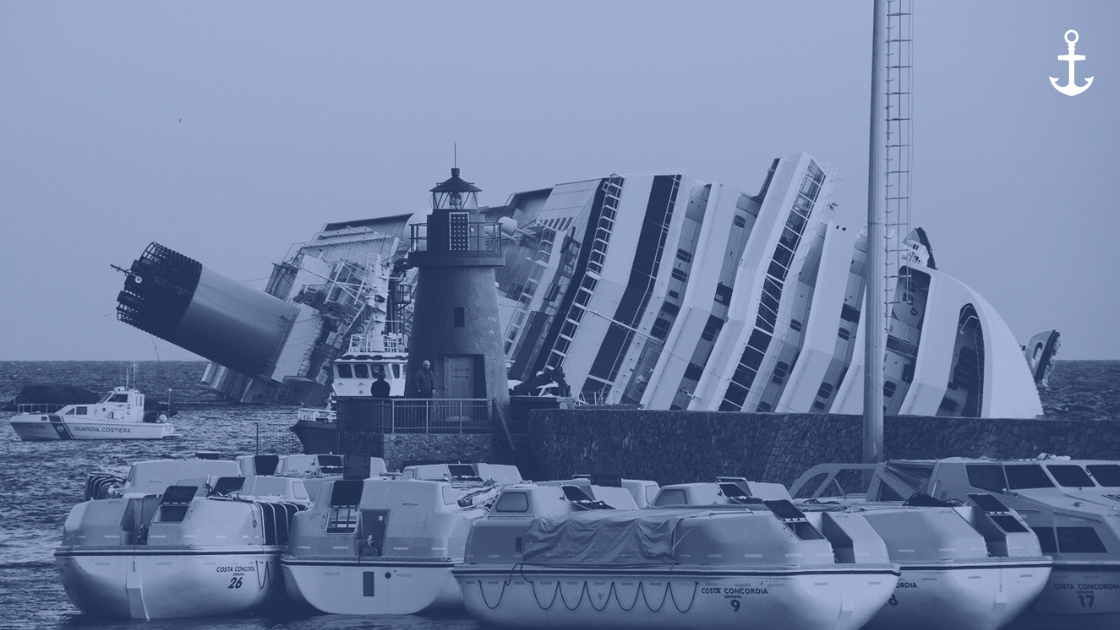
- Background: The Costa Concordia cruise ship ran aground off the coast of Italy in January 2012. The vessel partially sank, posing a significant environmental threat.
- Salvage Operation: Salvors, led by Titan Salvage and Micoperi, conducted a complex salvage operation to upright and refloat the massive ship. They had to prevent further environmental damage.
- ICS Application: The salvors would likely have been entitled to a substantial reward under the ICS for their successful efforts in saving the ship and minimizing environmental damage.
MSC Napoli Salvage (2007)
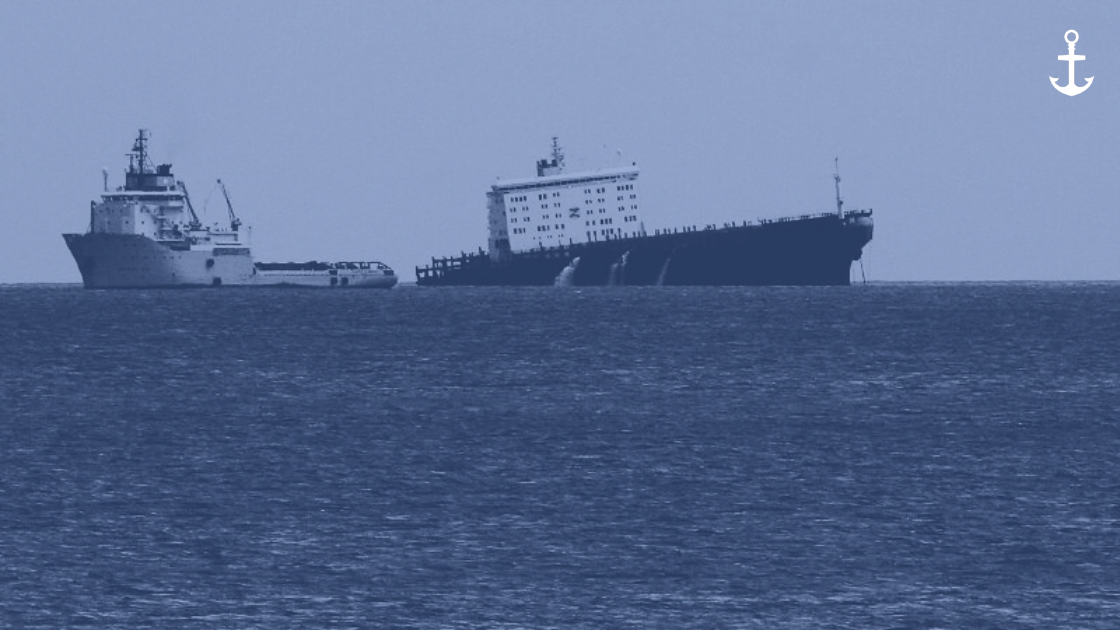
- Background: The MSC Napoli cargo ship suffered structural damage in the English Channel, leading to the abandonment of the vessel. The ship carried valuable cargo.
- Salvage Operation: The salvors, Svitzer and Titan Salvage, successfully refloated the vessel and saved a significant portion of the cargo.
- ICS Application: Salvors would have been eligible for a reward based on the value of the salvaged property and the skill and efforts exerted during the operation, as outlined in the ICS.
MV Rena Grounding (2011)
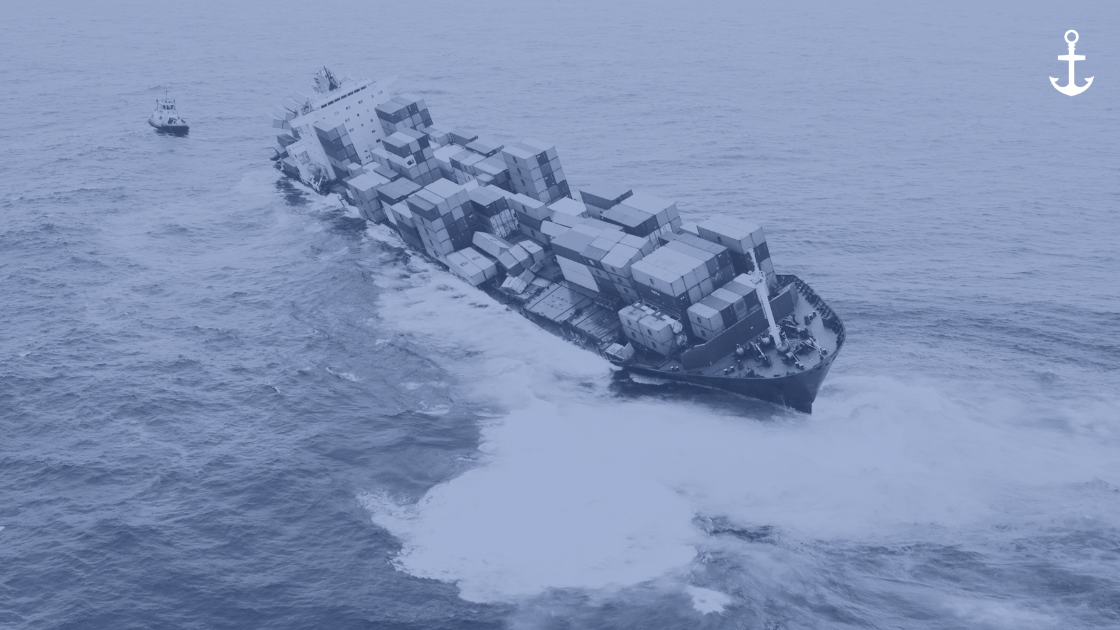
- Background: The MV Rena container ship ran aground on Astrolabe Reef, New Zealand, causing a significant environmental disaster due to oil spills.
- Salvage Operation: Salvage companies, Svitzer and Svitzer Salvage, were involved in removing containers and oil from the vessel, minimizing further environmental damage.
- ICS Application: Salvors would have been entitled to compensation under the principles of the ICS for their successful efforts in preventing and mitigating environmental pollution.
Cougar Ace Salvage (2006)
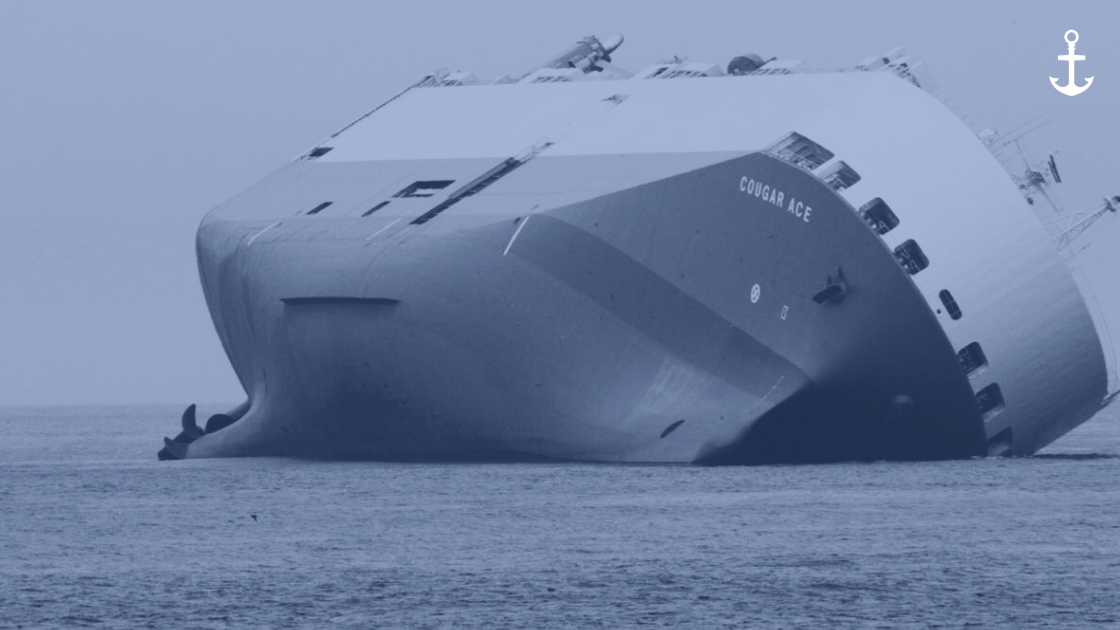
- Background: The MV Cougar Ace, a car carrier, nearly capsized in the North Pacific Ocean. Salvage was required to prevent a potential environmental catastrophe.
- Salvage Operation: Titan Salvage conducted a successful salvage operation to stabilize the vessel and prevent its sinking.
- ICS Application: The salvors would have been eligible for a reward based on the value of the salvaged vessel and property, as well as the skill and efforts demonstrated in preventing environmental damage.
Kulluk Rig Salvage (2012)
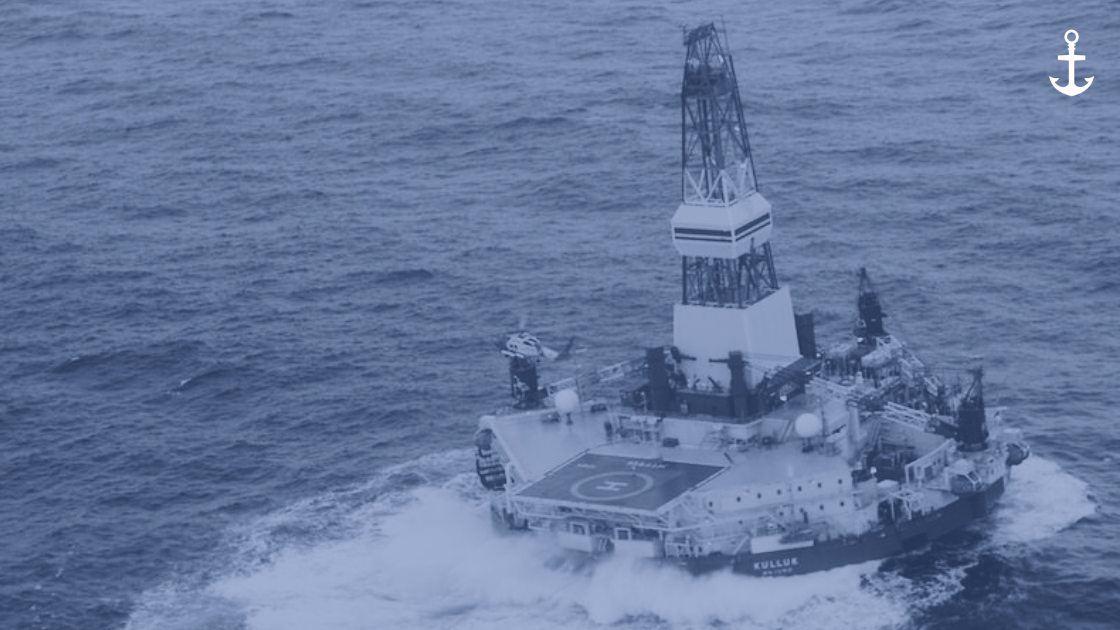
- Background: The Kulluk, an offshore drilling rig, ran aground off the coast of Alaska. Salvage was necessary to prevent environmental damage in a sensitive ecosystem.
- Salvage Operation: Salvors, including Smit Salvage and Crowley Maritime, successfully refloated the rig.
- ICS Application: Salvors would have likely received compensation under the ICS for their efforts in preventing environmental harm and saving the valuable rig.
These case studies demonstrate the practical application of salvage agreements like the ICS in complex and challenging maritime situations. Salvors play a critical role in saving vessels, cargo, and the environment, and their compensation is determined by various factors outlined in the salvage agreements and conventions.
MarineX's Salvage Convention Bookcase
Disclaimer: The flipbooks presented in above MarineX'sBook Case have been transformed from directly downloadable PDFs originating from diverse sources, with no modifications made to the content. Should you require further information or have inquiries about the content, you are encouraged to directly reach out to the respective websites and sources. Many of these sources provide comprehensive contact information. Our intention is simply to aid our readers in accessing a unified and comprehensive overview of all pertinent content on the subject subsequent to reading our blogs.
Generated with love, support & assistance of AI